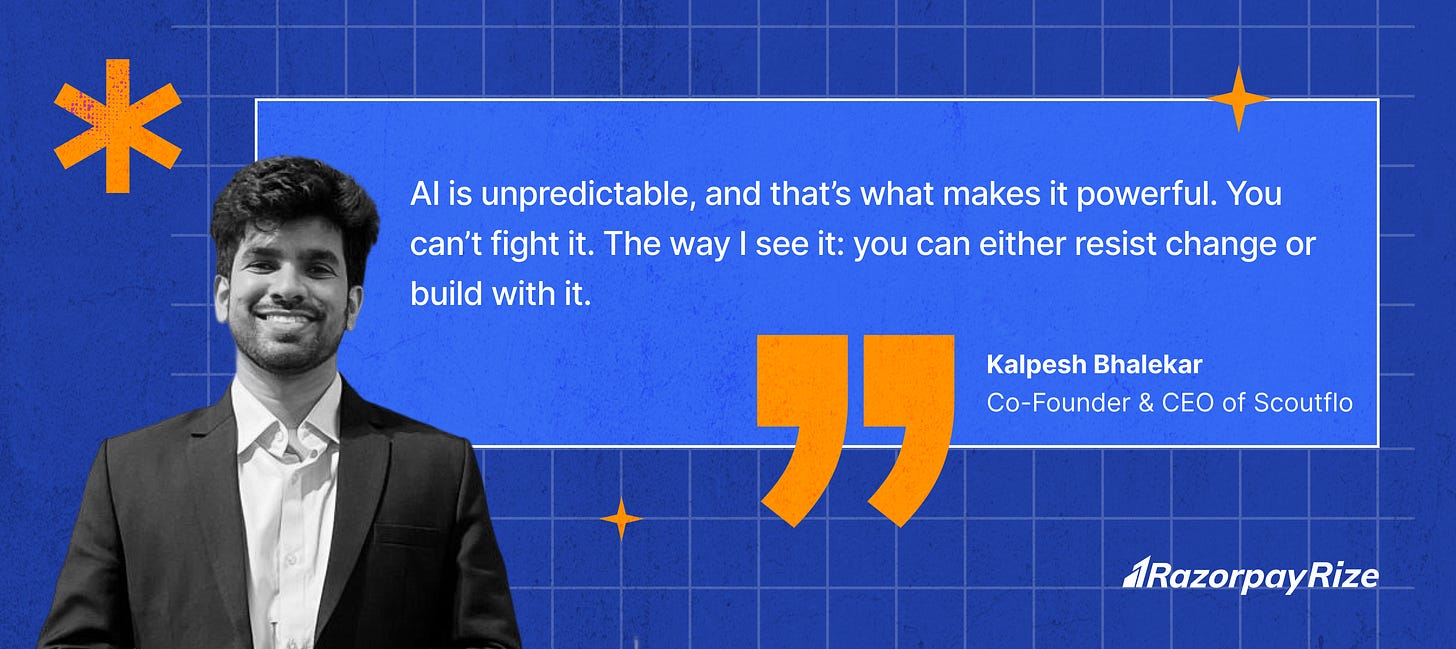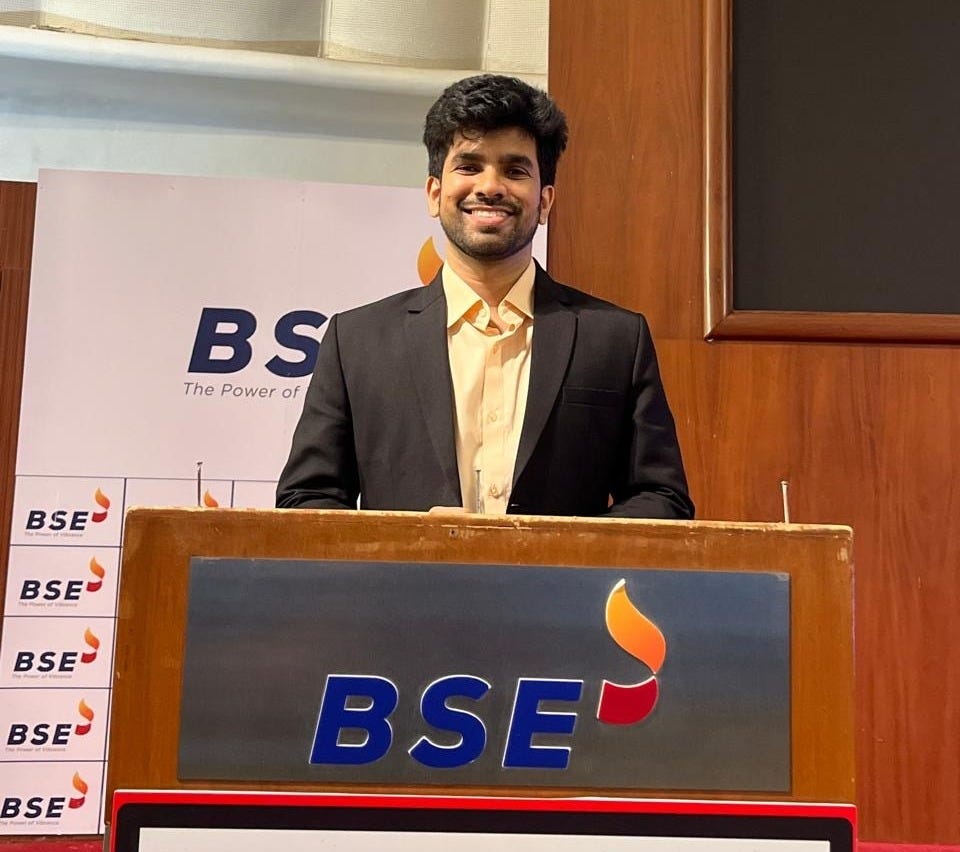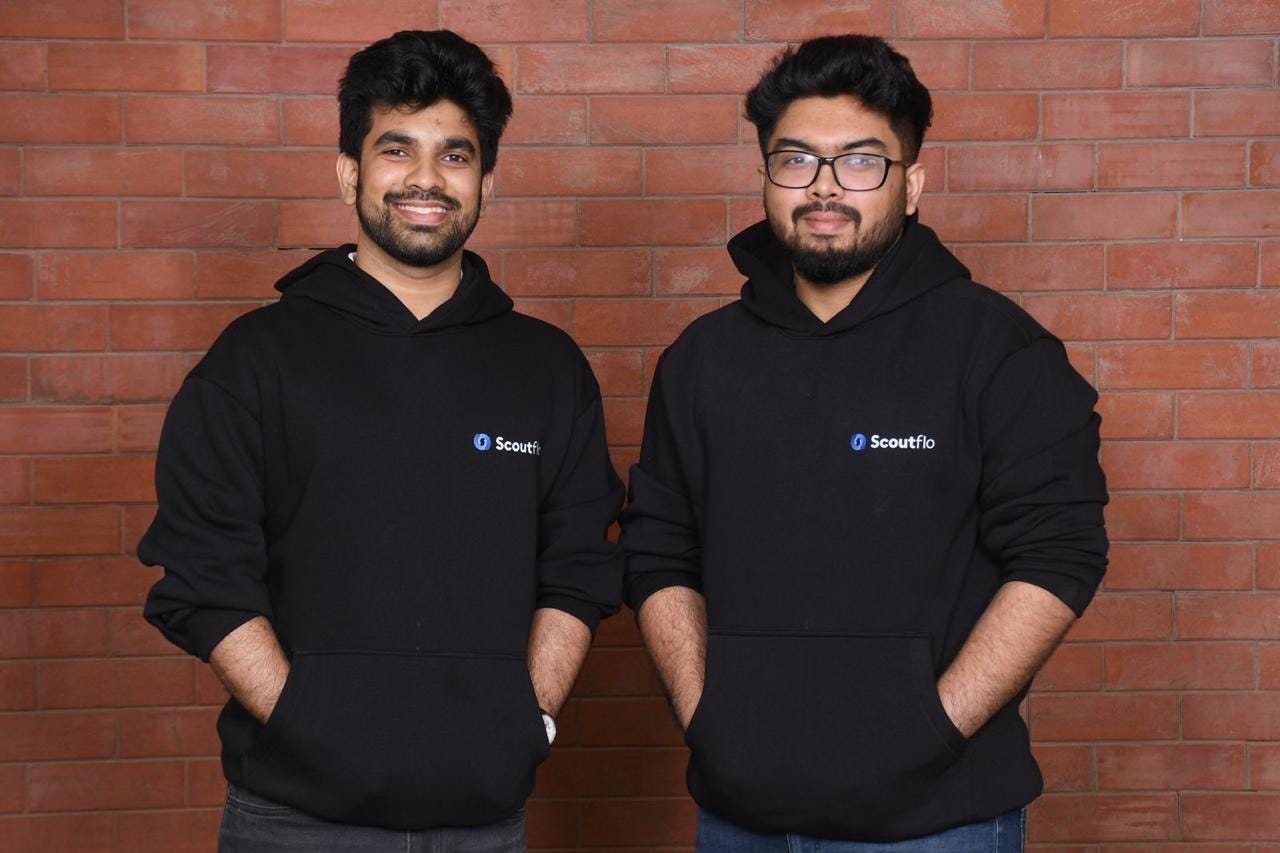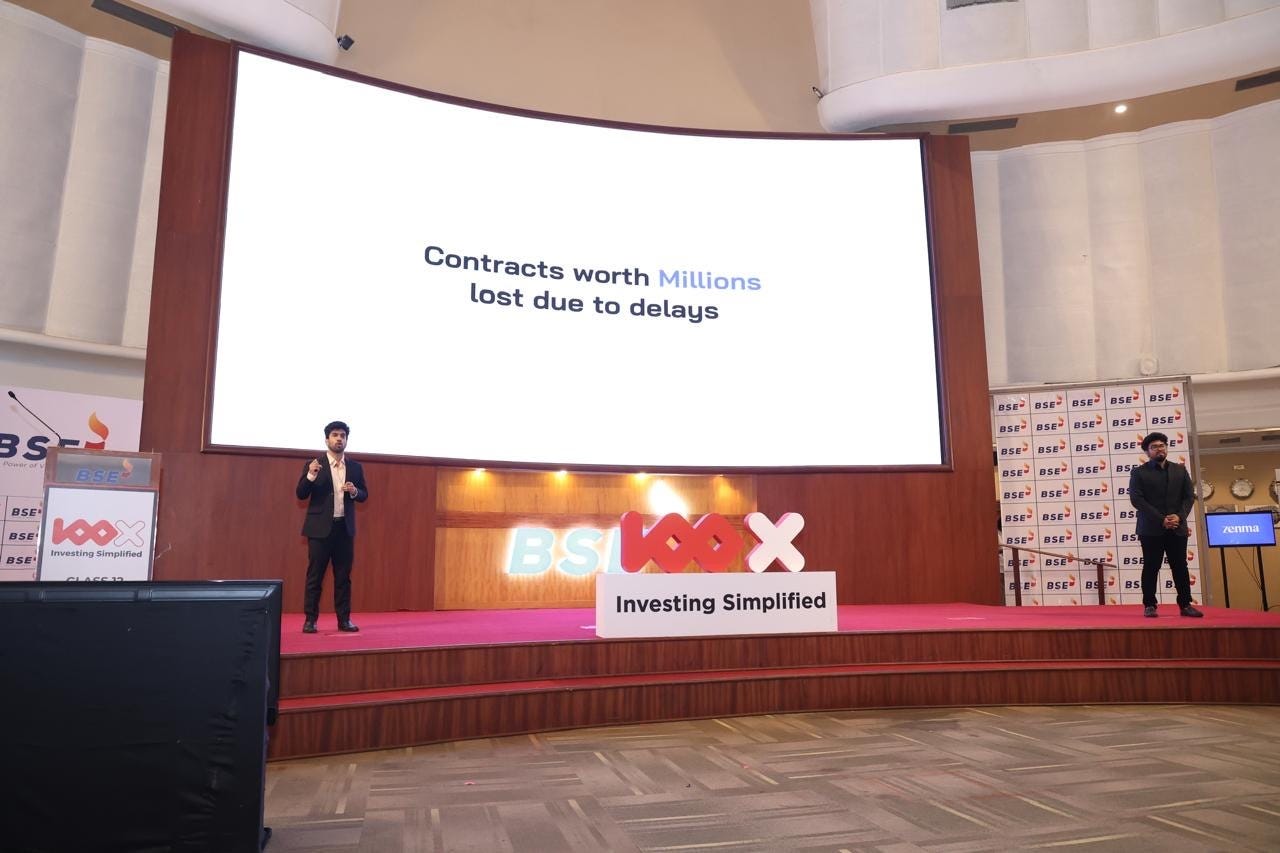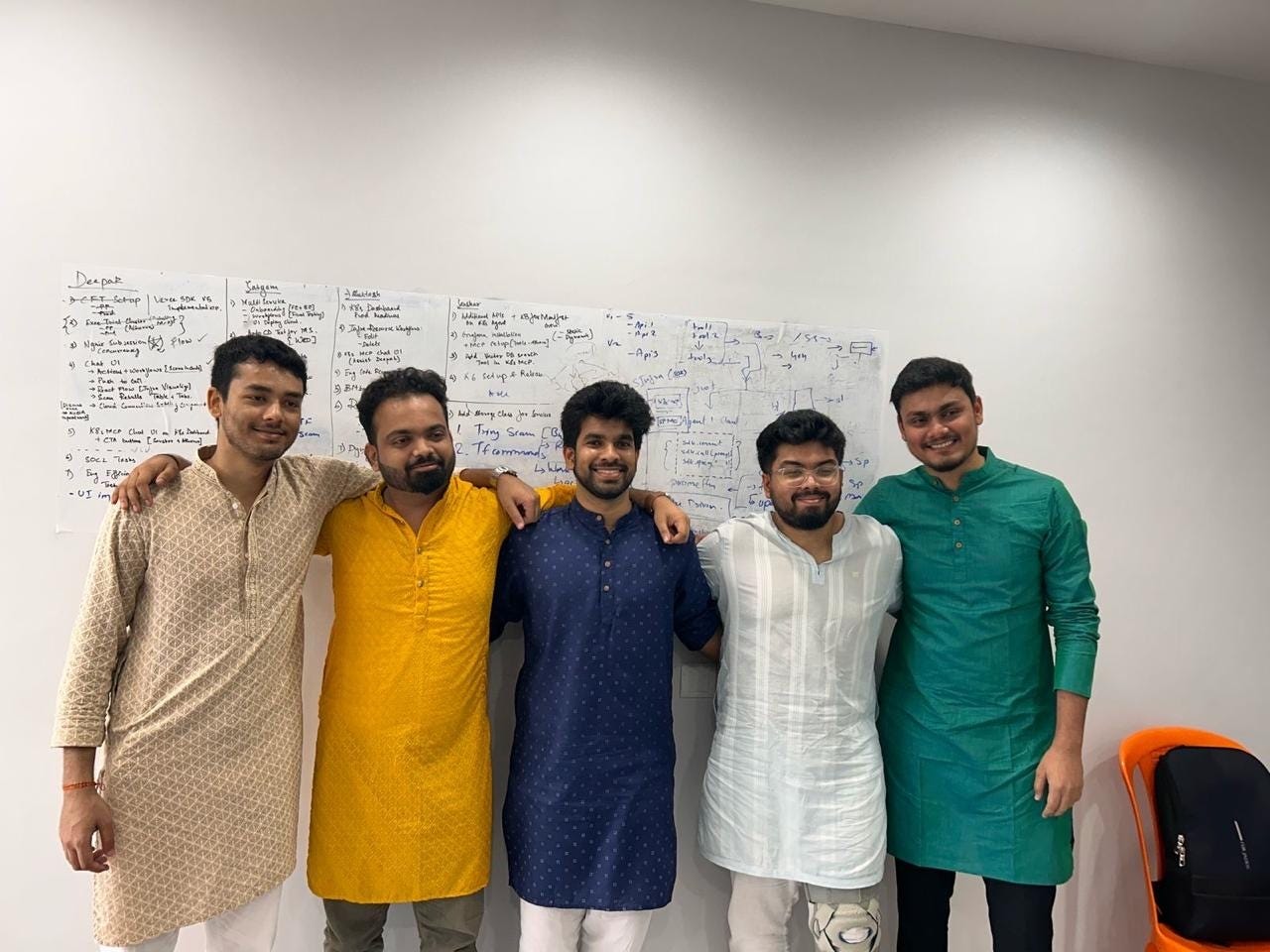Breaking Into Tech Without Writing a Line of Code: The Story of Kalpesh & Scoutflo
Kalpesh, CEO of Scoutflo, is on a mission to simplify DevOps with AI. By building AI agents, he’s making deployments easier for developers and teams. Read more about his story here.
Kalpesh Bhalekar is the CEO of Scoutflo, an AI startup focused on building DevOps AI agents that help engineering teams debug code in real-time. His journey to this role is far from the traditional tech founder story.
Today, Kalpesh combines his sales expertise with a passion for AI innovation. His story shows that even without a coding background, with the right mindset and support, it’s possible to build cutting-edge technology that solves real problems.
I didn’t plan to be a founder. In fact, if you told 17-year-old me, juggling commerce classes by day and selling real estate by evening, that one day I’d be building an AI debugging company, I would’ve laughed.
Back then, working wasn’t a choice. It was a necessity. I started out as a real estate broker while still in college. It wasn’t glamorous- long hours, low pay, and a lot of walking in the Mumbai heat. But I was curious. I liked trying new things and figuring out what clicked.
In the next three years, I switched jobs five times. That sounds flaky on paper, but I wasn’t drifting- I was learning. I wanted to taste different kinds of work to figure out what fit. I went from real estate to door-to-door sales, to consulting, and even a few part-time marketing gigs.
Each role taught me something valuable. I learned how to handle rejection without flinching, how to sell without sounding like I was selling, and most importantly, how to keep showing up, especially on the days I wanted to quit.
A Crazy Resume Drop and My First Break
After graduation, I did something a little crazy. Like many of us, I was a huge fan of Terribly Tiny Tales, and one day, I just Googled their address and walked into their office with my resume. No appointment, no referral. I wasn’t qualified, but they liked my energy and gave me a shot. That job had nothing to do with tech, but it gave me something more valuable- confidence. It proved that sometimes, enthusiasm really does open doors.
Breaking Into Tech with a Cold DM
While sales always came naturally to me, I was quietly fascinated by tech. But how does someone with a commerce degree break into tech? I didn’t know the lingo, couldn’t code, and had no formal background. Still, I couldn’t ignore the pull.
So I started cold-messaging people on LinkedIn- founders, sales leaders, product folks. Most ignored me, but one day, two people didn’t: Arjun Pillai and Prasanna, SaaS veterans. They not only replied but also offered mentorship. They taught me the fundamentals of SaaS, and when they saw how hungry I was to learn, they took a chance on me.
That opportunity became the inflexion point of my life. Eventually, the company got acquired. I had officially broken into tech and didn’t feel like an outsider anymore. After that, I joined a YC-backed startup and helped scale it.
That experience taught me what early-stage chaos really looks like- how to sell when no one knows your name, how to build credibility fast, and how to function without formal processes. Somewhere along the way, I met Vedant, my now co-founder. During the COVID lockdowns, we ran a small agency on the side: he would build tools, and I would sell them.
We worked well together, and when he came up with the idea for Scoutflo, I knew I wanted in.
Building Scoutflo
The idea was simple but powerful. Every time code is deployed in any software development process, bugs pop up, sometimes instantly, sometimes later. Debugging those issues slows down teams, delays launches, and drains morale.
What if there were an AI that could help teams debug in real-time? That question became the foundation for Scoutflo!
Scoutflo helps solve a specific developer pain: every time a team ships code, unexpected bugs often appear during deployment. These bugs can be incredibly hard to diagnose, especially under release pressure. So, we built an AI-powered agent that helps engineering teams debug their systems in real time.
It’s not an easy product to sell. Developer tools require deep trust. Unlike a chatbot or a CRM, you can’t just show a demo and close the deal. Developers need to know that your product will work reliably, and only then do they buy. But when they do, they stay. Every win feels earned.
The Courage to Quit & Start from Scratch
The hardest part wasn’t building the product- it was deciding to go all in. At the time, I had a great job at a US-based company: remote work, good salary, stability. I didn’t dare to tell my parents I was quitting.
So for an entire year, I pretended I was still going to work. I’d leave home every morning with my laptop, sit at a café or a friend’s place, and work on Scoutflo. It was only after we raised funding that I came clean.
If you ask me where I got the confidence to quit a stable job and dive into a deep-tech startup with no engineering background, I won’t give you a motivational answer. The truth is- I didn’t have it. What I had was Vedant. He quit first and then told me, “Take your time. Save up. Join full-time when you’re ready.”
That support made all the difference! Building a startup is harder than most people think- mentally, emotionally, and financially. Having a co-founder who understands you on your worst days is everything.
The full-circle moment? Arjun and Prasanna, the same folks who gave me my first tech opportunity, came on board as angel investors in Scoutflo. There’s something incredibly special about being backed by people who believed in you the first time, and still believe in you now.
And, later, by a team!
AI vs Humans: Who wins?
There is no clear winner!
AI is unpredictable, and that’s what makes it powerful. You can’t fight it. You have to make it part of your strategy. I’m not just hoping AI wins, I need it to because it’s the foundation of what we’re building.
The way I see it: you can either resist change or build with it. We chose the latter.
Lessons from the Journey
1. There is no “perfect time”
You’ll never feel 100% ready. You just need a decent financial cushion and a real problem to chase.
2. Triple your timelines
If you think you’ll hit PMF in 6 months, be ready for 18. Always assume things will take longer.
3. Find your person
Having a co-founder who gets you is underrated. This is harder than marriage. You need someone who can carry the weight when you can’t.
My Mantra for Tough Days
Tough days don’t announce themselves. Sometimes it’s a delayed feature. Sometimes it’s a lost deal you were counting on. Sometimes it’s just you, doubting everything.
What helps? A proper weekend reset. I cook, sleep in, hang out with friends, and binge-watch Modern Family. I see a lot of myself in Phil, someone who tries to bring fun and optimism into everything. Vedant, on the other hand, is definitely Jay, calm, structured, and matter-of-fact. That balance works for us!
If Not This, Then…
There’s an internal joke in our family: “Thank god things went south. Otherwise, you'd be stuck in a cubicle somewhere.”
If not this, maybe I’d be in investment banking. Or some other sales role. But I know I wouldn’t have been this happy. I wouldn’t have taken half the risks. And I definitely wouldn’t have built something that feels this meaningful.
So, at the end of the day, if you’re thinking of making a leap into startups, tech, or something that scares you, here’s what I’ll say. Don’t wait for the perfect moment. Make a plan. Find a partner who believes in you. And be kind to yourself in the process.
It won’t be easy. It won’t always be fun. But you’ll find your thing somewhere in the chaos, just like I did!
At Razorpay Rize, we’re proud to support founders like Kalpesh Bhalekar, whose journey is a true example of determination and hard work. Without a formal tech background, Kalpesh started from scratch, juggling multiple jobs and learning on the go.
His passion for technology and willingness to take risks helped him break into the tech world and eventually lead Scoutflo.



